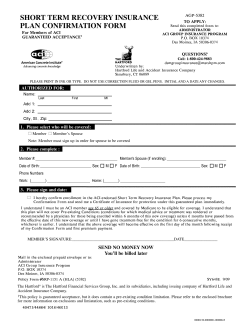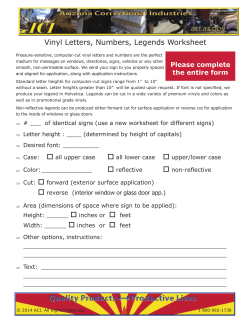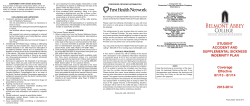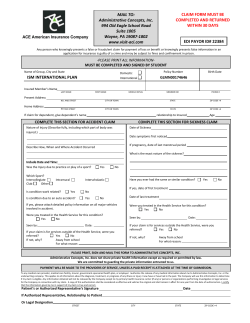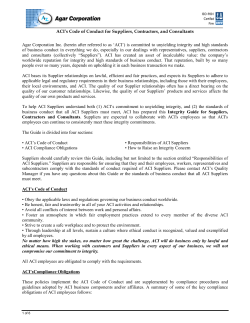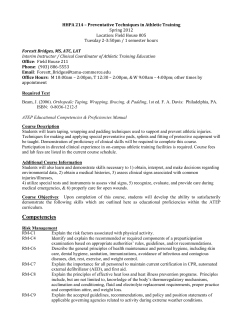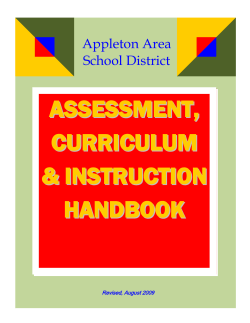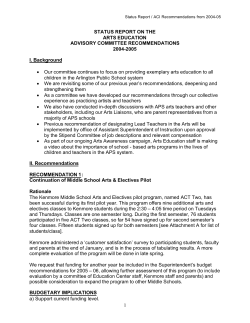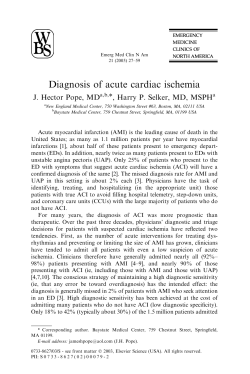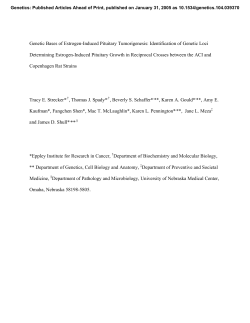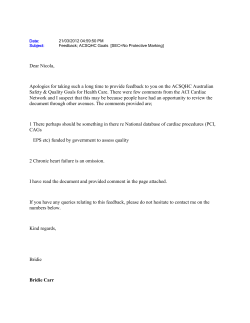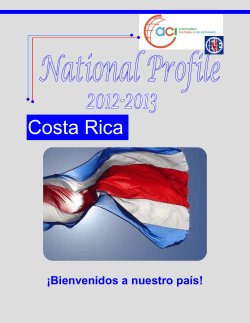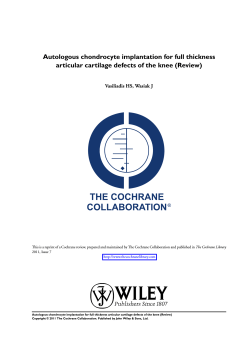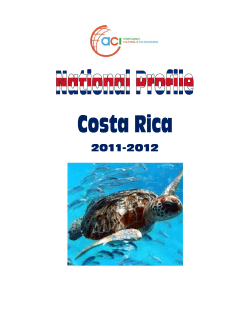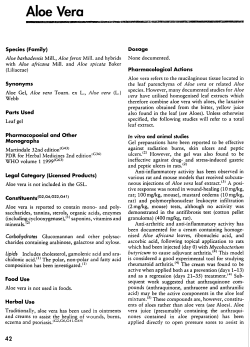
[NUBAPATA (“I GOT HER IN THE BUSH”)] ( Tape: 22:17-32:26
N“BAPATA [NUBAPATA (“I GOT HER IN THE BUSH”)] (T”rz”na Gabade, pages 16-22. Potiskum: Ajami Press for the Yobe Languages Research Project, 2003) Tape: 22:17-32:26 T1W_NBP 000a N“BAPATA 000b T”rz”na! - Saksaka! 001 Gaman da yawu uktlera zalla msat”n, gamatk”kci, 002 atu g”nu kunan yauman, kunau da s”nvai, fen dakwt”tu. 003 Kuna ms”no s”nvau ”tku, atu a ng”ta ma t”d”m”n yau, 004 dakwt” md”n dandi pata, dakpipi, 005 da tli, aci da gafi i wunya kunan. 006 To, aci dasti wunyau ma m”ra ma N”bapata. D”jlawi, d”jlawi yauman, wun” mewu a jlara e md”n 007 yauman, 008 sai da anguci ma, ìMban! Awun man mdan, talawun msat”n ko wunya gaman ka 009 a gawun”m?! 010 Mame yawu ka da fati i pata!î 011 Wunu da ne ma, 012 ìYaya, ag”m man kale, g” yawu ben i duwon ga fati i pata?î 013 ìAa, n” yawum, n” ji i pata duwon kunau da sazvi.î 014 ìNa g” tai i an?î 015 ìAa, ayu fa n” ta” ben i tinan”m.î Kazari da kuri, aci da v”ri i pata, aci a maka, aci a maka, aci a 016 maka, aci a maka yauman, 017 aci da gami e g”msu. N”bapata NUBAPATA (“I GOT HER IN THE BUSH”) Here’s a story! - Let’s hear it! A woman gave birth to her children all boys, but the girl among them, when she (the mother) became pregnant with her, her pregnancy aborted, and something took her (the aborted girl) away. When that pregnancy aborted, she (the mother) remembered only blood, but SOMEONE took her (the foetus), carried her to the bush, cared for her, she grew up, and he took her as his own daughter (a daughter of [his own] pregnancy). Well, he named the girl saying her name was Nebapata. They were living and living, when a son of the mother had a dispute with someone, and he (the other man) abused him (the son) saying “Shit! You people, all of you are males and there’s not even a girl among you?! When your lousy mother bore one she threw her away in the bush.” The son went and said, “Mother, you indeed, did you really give birth to something and then throw it away in the bush?” “No, I didn’t give birth, I just went to the bush and the pregnancy aborted.” “Well where did you drop it?” “No, me I didn’t drop anything anywhere.” He couldn’t accept it (his heart refused), and he went to the bush and was searching and searching and searching and then he met up with the man. 1 018 G”msu mdan gamaga er”m. 019 Awun gaman, aci a tai. 020 Sai aci dalhi many”mu ma, ìYa maka k”m?î Aci ma, ìKai! Wunyak Yaya diye, patu duwon, na maka 021 duwon, n”zga reram!î Aci da nauti, md”n bam dalhici ma, ìT”na md” msi awun 022 gamau g”zgaci i?î 023 Aci ma, ìOo.î 024 Mdu dalhici ma, ìMd” msitku, ngani! 025 Ag”ci na, aci masotku, wunya mame a gari. 026 Ya jl”mi nanuwan yaye, a jlami kokarin ga ni i ngwari.î 027 Aci ma, ìTo.î Sau gae aci ji i dawan yauman, aci da bi loga maduwau aci da 028 s”mi, da tasitu. 029 Aci ma, ìMm! Ag”m i wunya metk”ja?î 030 Atu ma, ìAwu! Agi i wun” metka?î 031 Aci ma, ìAwu!î 032 Atu ma, ìTo, agi wun”k metka kwaya, Baba taga mdan. 033 Ayu na ararm”n” mdotku, avgi i kunau na, na kuigi na. 034 aci, aci jinari i dawau na, wuce ga v”re.î 035 Atu ta”ci i aramu dauni. 036 Afarau da ne dalhitu ma, ìN”bapata, hawak” mdi bilu.î 037 Atu ma, ìAa, Baba, pata mcoye na ba ke?î 038 Aci kwiyya aci ar”m. 039 Kaka da tlani. Aci ”sf i maduwa. 040 aci asfayi, garwon guma a vai yaye askwani i gari. 041 Aci jawa na aci kotaga i wunyatk”ri ma, N”bapata The man, people didn’t (dare) meet up with him. If you met up, he would eat you. Then he said to the boy, “What are you looking for?” He said, “Gee! It is surely the daughter of my mother, she is lost and I am looking for her, but I don’t know where she is.” He passed by and a different person said to him, “Now that man that you met up with, do you know him?” He said, “No.” The man said to him, “That man, right! Follow him, he that butcher, the daughter of your mother is with him. No matter how you do it, try to go to his house.” He said, “OK.” One time when he had gone out to tend animals, he came across the very location of the house, he snuck up, and he found her. He said, “Mm! Are you the daughter of our mother?” She said, “Yes! Are you the son of my mother?” He said, “Yes!” She said, “Well, if you are the son of my mother, Father eats people. Me, those grain bins, drop inside, I will close you in, and he [her father], when he has gone tending, then come out.” She put him in the grain bin and he spent the night. Her father came and said to her, “Nebapata, (I smell) the odor of an outsider.” She said, “No, Father, in this bush who would I get?” He (the brother) he didn’t move. The dawn came. When he came into the house, he was coming in, even fifteen goats were numbered at his place. When he came he would call to his daughter, 2 ìN”bapata tako kanyi patore, Babani d”bzeye d”tkaya d”bu k”ncaro t”kero, Gaptako t” t”mbal t”mbal lene, S”ga wuro mana ko peroni.î Na atu taks” beu be wayau ”tkaru yauman, atu da rawinara da ”basi i sik rake na, aci ja na, ìNakwt” mso na bari mda ”vda mco, Nakwt” mco na bunkuu bunku, Nakwt” mco na bari mda ”vda mco, Nakwt” mco na bunkuu bunku, Nakwt” mco na bari mda ”vda mco, Nakwt” mco na bunkuu bunku.î Na gwel, aci da kii vayau na, sai da gaptaki ben be ek zayan. Na koro kaka tlanu yauman, koro aci da pi da ni i dawau. Atu da pe vayan nanuwan kam: kacimon, tagdan, tamka, atu da 056 takse i wunu mewu. 057 Gae g”rawan, atu ta” na, a t”i ngaramon, gae karagan. 058 Atu tae na, karagan-”gbantunen. 059 ìTo aci ikagi na, aci a kotai,î 060 ìNi k”rima yanibero, 061 B”ri dalo yanibero.î 062 Na, wunu da kotici ma, 063 ìPararan dama dodo sai tafiya, 064 Pararan dama dodo sai tafiya, 065 Pararan dama dodo sai tafiya.î 066 Aci kar”nt” i gari n, 042 043 044 045 046 047 048 049 050 051 052 053 054 055 1 Song in Kanuri, lines 042-045.1 Kanuri Kanuri Kanuri When she tied up the thing [with the] tethering peg and it was finished, she ran and hid under the bed and he came saying, “I take this one and give it to the people of this neighborhood, I take this one (and swallow it) bunkudu-bunkud, I take this one and give it to the people of this neighborhood, I take this one (and swallow it) bunkudu-bunkud, I take this one and give it to the people of this neighborhood, I take this one (and swallow it) bunkudu-bunkud.” That was that, he ate the animals, what was left was what had a rope. Well then when the dawn came, he got dressed and went out tending. She poured out all kinds of goods: clothes, money, everything, and she attached them to the son of the mother. One of the gourds, if it released something, it would release a river, one a forest. When it released (the forest), the forest (would become) hazy. “OK if he sees you, he will call you,” Kanuri lines 060-061. Kanuri She said the son should call to him, “Pararan you know an ogre, just walking, Pararan you know an ogre, just walking, Pararan you know an ogre, just walking.” When he (the boy) got close to where he (the father) was He tells her that he will eat any goats that do not have a tethering peg. She should go and hide so that he will not eat her. N”bapata 3 067 aci da tai beu dako-dako na, koro aci a sava, aci a sava, aci a sava, aci ikaci ”nna yauman, 068 koro aci a koteci, 069 ìNi k”rima yanibero, 070 B”ri dalo yanibero.î 071 Na, wunu da kotici ma, 072 ìPararan dama dodo sai tafiya, 073 Pararan dama dodo sai tafiya, 074 Pararan dama dodo sai tafiya.î 075 Na koro sai aci da tai. 076 Aci tai g”rawau yauman, ngaramou ”gd” dab”tk”kci. 077 Shikenan, aci jidu vayau. 078 Koro wun” mewu ika yauman, aci ma, ìAyu ka na na.î 079 Koro aci a na, a na, a na da b”tu. 080 Atu da gwadatici. 081 Koro aci dagvi i arama atu da ku”ci. 082 Koro aci ye da capte, aci da ne, 083 ìN”bapata tako kanyi patore, 084 Babani d”bzeye d”tkaya d”bu k”ncaro t”kero, 085 Gaptako t” t”mbal t”mbal lene, 086 S”ga wuro mana ko peroni.î Atu da taksi md”no beu be e zayau, beu be ”sfa bilu zayan 087 nabe, koro aci da ne, 088 ìNakwt” mso na bari mda ”vda mco, 089 Nakwt” mco na bunkuu bunku, 090 Nakwt” mco na bari mda ”vda mco, 091 Nakwt” mco na bunkuu bunku, 092 Nakwt” mco na bari mda ”vda mco, N”bapata he (the son) released the things behind him, again he was wading and wading and wading, and when he (the father) suddenly saw him, then he called him, Kanuri lines 069-070. Kanuri Then the son called to him saying, “Pararan you know an ogre, just walking, Pararan you know an ogre, just walking, Pararan you know an ogre, just walking.” And again he released them. When he released the gourd, the river formed (split) between them. Well then he took the wealth (home). Then when (another) son of the mother saw that, he said, “Me indeed, I am going.” So then he was going and going and going and he found her (his sister). She took showed (the routine) to him. Then he dropped into the grain bin and she closed him in. The he (the ogre) gathered (??his animals), and he came, Song in Kanuri, lines 083-086. Kanuri Kanuri Kanuri She tied up those that had a rope, those that had come anew had no rope, and again he came, “I take this one and give it to the people of this neighborhood, I take this one (and swallow it) bunkudu-bunkud, I take this one and give it to the people of this neighborhood, I take this one (and swallow it) bunkudu-bunkud, I take this one and give it to the people of this neighborhood, 4 093 Nakwt” mco na bunkuu bunku.î 094 Aci datk”ri vaya md”no gok taksau nabe tala aci ki”kci. Koro aci dasfe, aci ma, ìN”bapata, ayu fa, na dukwa k”ma 095 md”n.î 096 Atu ma, ìAa, Baba, md”n gae ka, aganem diye.î 097 To aci da vadinari. 098 Wunyatk”ru kwaya, sai beu atu nci na duwon da ti. 099 Koro dauni, koro da lapti vayau k”ma ka msi ka ”skuru. Wun” metk”kci gae akuyan, aci ye da tli ma aci a na. ìG” 100 jam!î 101 Aci ma aci a na. ìG” jam!î 102 Aci ma aci a na. Aci ika vayau be mdan”kci j”du. Aci da ne. 103 Aci ja yauman, sai atu da z”nici ma, ìNa t”ai i arami kacimou dama kak runakou dama kak 104 jaau?î 105 Aci ma, ìA tayi i kak jaau.î 106 Aci ”gv i rek jaau na, urum-urum-urum. 107 Atu p”mu aramau ye, aci a dukwam. 108 G”msu da ne, 109 ìN”bapata tako kanyi patore, 110 Babani d”bzeye d”tkaya d”bu k”ncaro t”kero, 111 Gaptako t” t”mbal t”mbal lene, 112 S”ga wuro mana ko peroni.î Atu da taksi md”no beu be e zayau, beu be ”sfa bilu zayan 113 nabe, koro aci da ne, 114 ìNakwt” mso na bari mda ”vda mco, 115 Nakwt” mco na bunkuu bunku, 116 Nakwt” mco na bari mda ”vda mco, N”bapata I take this one (and swallow it) bunkudu-bunkud.” He finished off the those animals that were not tied up, he ate them all. Again he came in and said, “Nebapata, me, I smell something like a person.” She said, “No, Father, there is surely not a single person with me.” Then he lay down. His daughter, just what she wanted she ate it. Well he spent the night, and again she loaded up the goods (on the brother) like that one (who came) first. One of their mother’s sons was deaf, and he arose and said he was going. “Don’t go!” He, on the other hand, said he was going. “Don’t go!” He said he was going. He saw the goods that their people had brought. So he went. When he had gone, she said to him, “Will I put you into the bin of clothes or else that of the candy or else that of the peanuts?” He said, “Put me [deaf person pronunciation] in the one of peanuts. When he dropped into the place of peanuts, crunch-crunch-crunch. She tapped on the grain bin, but he didn’t hear. The man came, Song in Kanuri, lines 109-112. Kanuri Kanuri Kanuri She tied up those that had a rope, the ones that had come in as outsiders didn’t have a rope, again he said, “I take this one and give it to the people of this neighborhood, I take this one (and swallow it) bunkudu-bunkud, I take this one and give it to the people of this neighborhood, 5 117 118 119 120 121 122 123 124 125 126 127 128 129 130 131 132 133 134 135 136 Nakwt” mco na bunkuu bunku, Nakwt” mco na bari mda ”vda mco, Nakwt” mco na bunkuu bunku.î Afu da ne dabd”tu ma, ìSabu ngwawa e k”m?î Atu ma, ìAa, Baba, ben agakum.î Akci dauni sana, afu da vadi, i dolle ena biya atu ”tka kumun na barici na. Atu ”tka kumun na yaye, afu ”rdit”m. P”ku koro aci da pi garwon da ni dawau. Atu da laptici koro k”ma ka mda mdi. ??Da barici kare mdo be g” jlam” na, Baba dab”tkuwun da kadi. Aci ikaci yauman, aci da kotici ek vayau aci a nari, ìNi k”rima Yanibero, B”ri balo Yanibero.î ìPararan dama dodo sai tafiyauî nabe, aci a dukwam. Aci ma, ìHwaa?! Yalhadane i?!î Aci da ni gari del, da gafeci da savgeci da t”ci, duwu mso aci gayu da ti. Kareu, daci nabe. Duwar aci dabzi amu gae aci dandi N”bapata. Aci j”du sasan i wunyatk”ri, N”bepata ika amu, sai aan”n. 137 Afau dabd”tu ma, ìN”bapata, sabu bag”m” k”m?î 138 Atu ma, ìBaba, ben gaekam,î yaye atu gajauta. 139 Aci dauni, kaka da tlani, aci da pi garwou, da ninari i dawau. 140 Aci ji yauman, N”bapata z”ra ben a ngwakc”m. Atu dakwti ami wun” mewu da z”i v”k”n da mak”du 141 abakwan da tagb”du. N”bapata I take this one (and swallow it) bunkudu-bunkud, I take this one and give it to the people of this neighborhood, I take this one (and swallow it) bunkudu-bunkud.” The father came and asked her, “Today who’s in our house?” She said, “No, Father, nothing is here.” They spent the night until the next day, the father lay down, and out of necessity she killed a rat and gave it to him [to make him think the strange smells and noise were from the rat]. Though she had killed a rat, he didn’t buy it. In the morning again he let out the goats and went herding. She loaded him (the brother) up like those other men (brothers). ??She gave him those goods, “If you do it, there will be a separation between you and Father.” When he saw him, he called him with the goods, he was going, Kanuri, lines 128-129. Kanuri. There was no “Pararan dama dodo sai tafiya,” he didn’t hear it [the brother hadn’t heard the instructions about the song]. He (the deaf brother) said, “Hwaa?! Are you talking to me?!” He went close to where he was, he (the father) caught him, pulled him down, ate him, and horse that he (the brother) had mounted he ate it. The goods, that was it, they were no more. In the afternoon he (the father) left one hand and he took it to Nebapata. When he took meat to his daughter and Nebapata saw the hand, she just cried. The father asked her, “Nebapata, today what’s the matter with you?” She said, “Father, not a single thing,” though she was frowning. He spent the night, the dawn came, he let out the goats, and he went off herding. When he had gone, Nebapata didn’t leave anything in their house. She took the hand of the son of her mother, dug a hole, hunted up some cloth (as a “shroud”), and buried it. 6 142 143 144 145 146 Da lapte kare maduwau, beu be atu ncu, ncu gaba aya, atu kwaya, i md”n ka atu a jl”mi, balle i aatk”ra. Aci daik”tu a pata, aci da koti ”rwau, atu dagwz”dici, aci da koti ”rwau, atu dagwz”dici. Kare mdo kwan atu jlamu yauman, ngaramou dagdi dab”tk”kci. 147 Atu jawo i ngwakci, jadu vayau yauman, aci da ni da koti, 148 ìN”bapata tako kanyi patore, 149 Babani d”bzeye d”tkaya d”bu k”ncaro t”kero, 150 Gaptako t” t”mbal t”mbal lene, 151 S”ga wuro mana ko peroni.î 152 ìNakwt” mso na bari mda ”vda mco, 153 Nakwt” mco na bunkuu bunku, 154 Nakwt” mco na bari mda ”vda mco, 155 Nakwt” mco na bunkuu bunku, 156 Nakwt” mco na bari mda ”vda mco, 157 Nakwt” mco na bunkuu bunku.î 158 Gwel, aci dabzi gwaman gae. 159 Aci ”sf” maduwa yauman, N”bapata nabe. 160 Kazari da kuri, bukka aci da gafe gwamau, 161 aci da kadute tinau be aci ukt”du wunyau, da tasikci. ìNanuwa? N”bapata, n” jlamig”m tam duwon ga nenam i 162 ngwawun?î 163 Atu ma, ìAa, Baba, ben”m.î 164 ìAtl”m wagwzuwa!î 165 ìNagwzam.î 166 ìAtl”m wagwzuwa!î N”bapata She loaded up the household things, the things that she wanted, what she wanted all togetther, as for her, for another she was doing it, how much less for herself. He (the father) saw her in the bush, he called her (with) the song, and she answered him, he called her (with) the song, and she answered him. Those three items (the gourds), when she had done them, the river created a separation between them. When she came to their (family) house and brought the goods, he came (back to his own house) and called, Song in Kanuri, lines 149-151. Kanuri Kanuri Kanuri “I take this one and give it to the people of this neighborhood, I take this one (and swallow it) bunkudu-bunkud, I take this one and give it to the people of this neighborhood, I take this one (and swallow it) bunkudu-bunkud, I take this one and give it to the people of this neighborhood, I take this one (and swallow it) bunkudu-bunkud.” That was that, he left one ram. When he entered the house, there was no Nebapata. He couldn’t accept it, bukka he caught the ram, he went to the place where he had picked up the girl, and he found them. “What’s going on? Nebapata, what did I do to you that you have come to your (family) compound?” She said, “No, Father, it’s nothing.” “Come on and let’s go back!” “I won’t go back.” “Come on and let’s go back!” 7 167 168 168 170 171 172 173 174 175 ìNagwzam.î ìAtl”m wagwzuwa!î ìNagwzam.î Daci aci da tlavi aatk”ri ariro ma, ìT”n be ag”m be n” bag”m duwoni, ayu wunyan a ganem, duwoni g” jayinam i ngwawun, ayu ye n”tku aatkane na. Ms”na gwamau, a jlamaduwun beu be na jl”mu.î Daci da tlavi aatk”ri en ngas”n damti. T”rz”na dungur”f! N”bapata “I won’t go back.” “Come on and let’s go back!” “I won’t go back.” Then he stabbed himself in the ribs and said, “Since you, nothing is the matter with you, and I don’t have a daughter at my place, yet you have come to your (family) compound, as for me, I kill myself. Here’s the ram, do with it what you will do.” And then he stabbed himself with a spear and died. The story is finished. 8
© Copyright 2025
